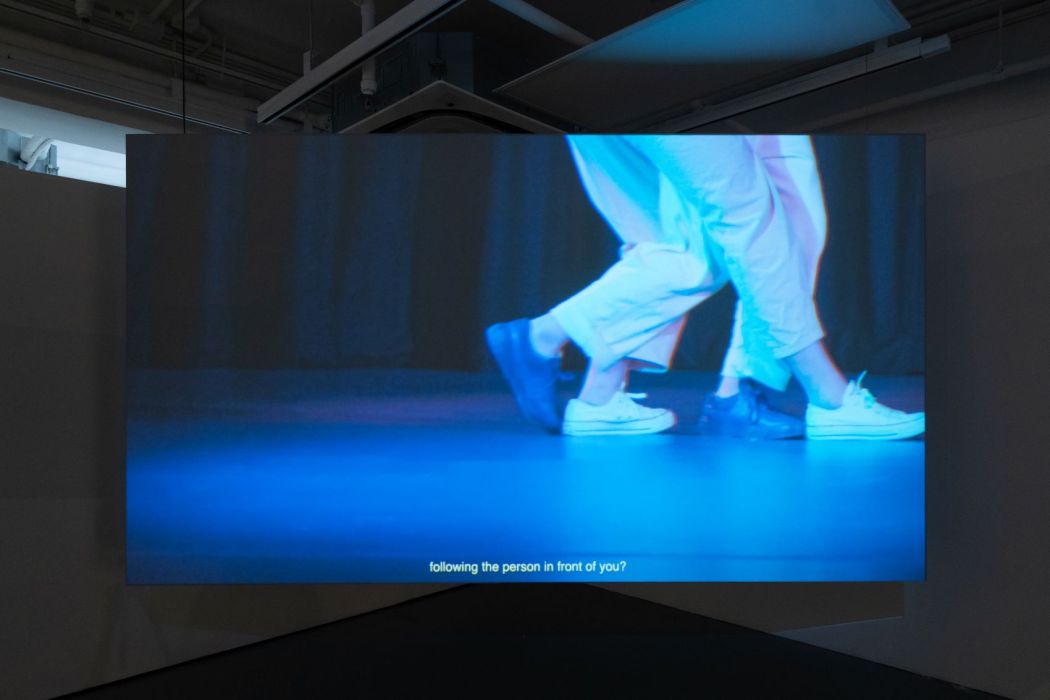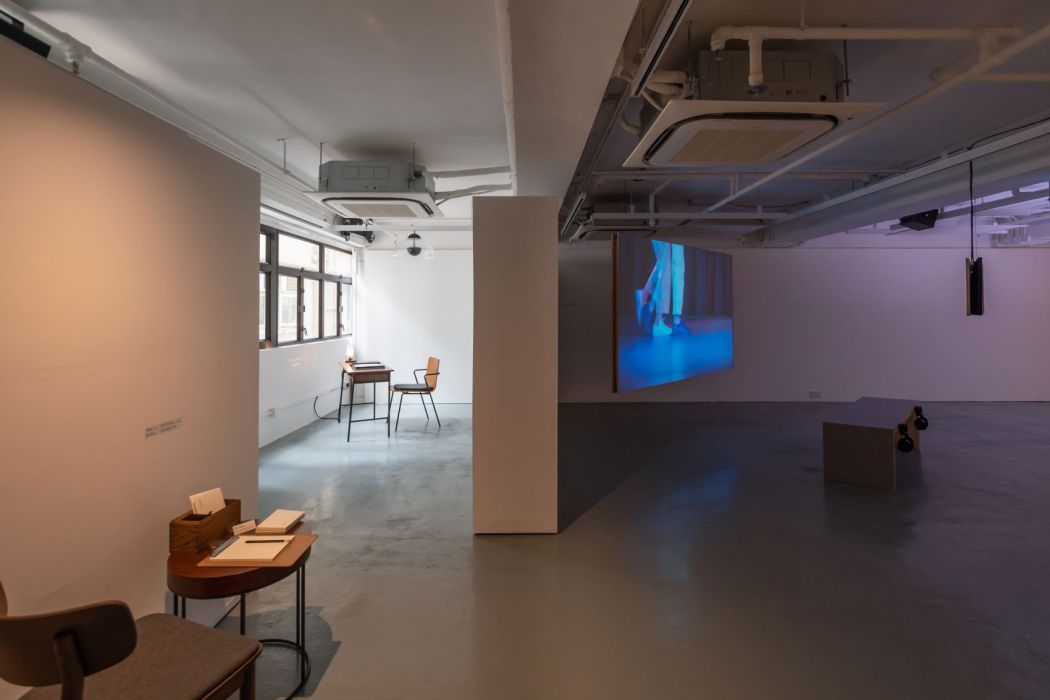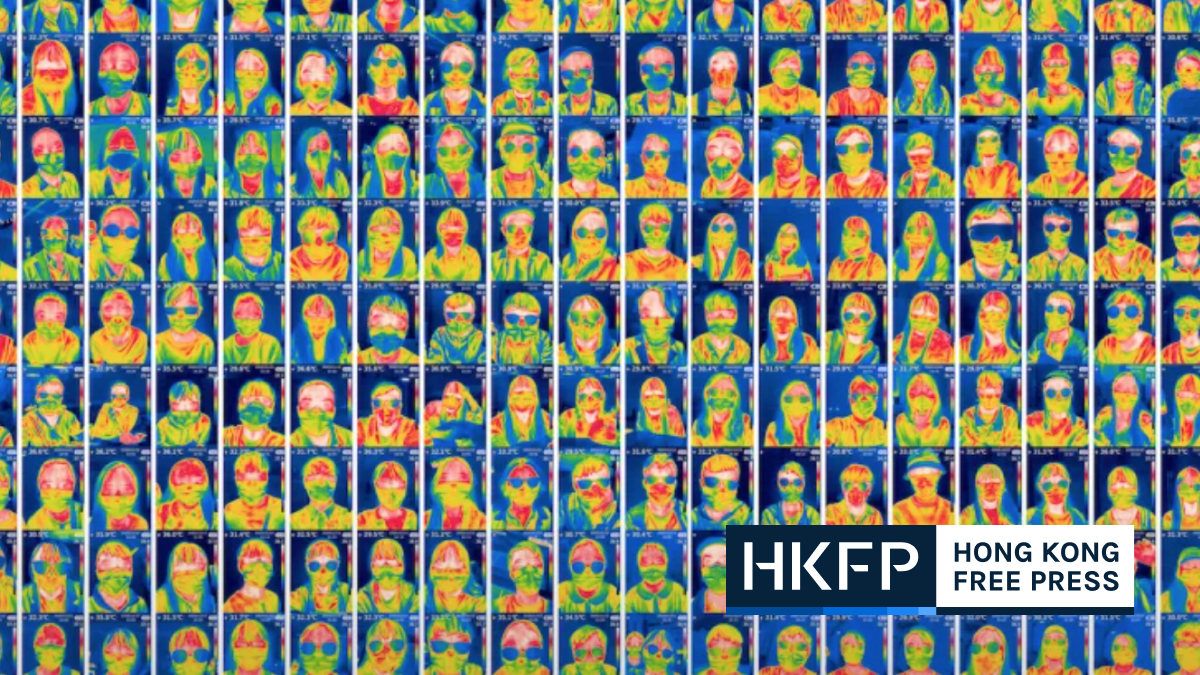[Sponsored] In a time of social distancing and quarantine requirements many feel further apart from one another than ever before. Nowhere is this phenomenon more acute than in Hong Kong, where the coronavirus outbreak followed a year of intense political upheaval that exposed cracks in a polarised society.
Yim Sui-fong and Kenji Wong Wai-kin attempt to address these painful problems in their respective works, “Avatar” and “When I look at you now…”, part of WMA’s exhibition “Can’t Touch This!” in Central. The collection — on display until April 25 — is a meditation on the realities of a pandemic that plunged the global economy into one of the worst recessions ever and has led to more than 2.8 million deaths worldwide, over 200 of which have been in Hong Kong, according to researchers at Johns Hopkins University.

Avatar begins as it often does in the digital world, with a screensaver. It is an image of a mountain range on a screen suspended in the middle of the room, the first in a three-part audio-visual installation that takes the audience on a path to re-establishing human connection. It is, as Yim describes, an autogenic training tutorial, using a relaxation technique that involves going through systematic exercises designed to induce a psycho-physiological response.
“This work wants to bring you from the virtual world into the real world,” Yim told HKFP. “ In the pandemic most of your time is [spent] sitting in front of the desktop… and there are a lot of pop-ups, free online classes, stuff like that. I was thinking, how can we use these classes to help you recall memories, so that isolation does not make you forget?”

In the second and most prominent section of the installation, viewers are invited to participate in nine exercises, named: forbidden tongue, anti-gravity, incorporation, exchange, discomfort, sing out loud, keep dancing and keep mountaineering, a nod to the screensaver as well as a slogan used in the 2019 social movement.

Two performers act out the movements, their bodies twisting and ricocheting off one another in a 25-minute film projected onto a large screen. At times it makes for an uncomfortable viewing, their arms entwined in an impossible knot before they catapult themselves to opposite sides of the room, like twin sides of a magnet. Their dance is in an intimate reminder of the awkward moments that often characterise in-person interactions, diminished in the pandemic.
“It is like a deep mark on your body, you think about whether you are yellow or blue… This autogenic training helps you face this scar.”
Yim Sui-fong
“When we are online we are not physical and we don’t feel the tension — for example, even with good friends we have some arguments, especially in the social movement, where there was no leader. You ask yourself, ‘shall I keep walking?’, ‘which way?’,” the artist said, adding she hoped the film would help recall memories of friendships lost during the protests.
“It is like a deep mark on your body, you think about whether you are yellow or blue,” she said of the colours ascribed to the pro-democracy and pro-establishment camps. “This autogenic training helps you face this scar.”
Speaking about her decision to select two women to semi-improvise the routine, the artist extolled what she described as the special bond between women, something that inspired the first movement “forbidden tongue.” The name referenced the female-only Chinese script nüshu that rose to prominence in the 19th century, when few women had educational opportunities.
“Women have a tendency to express (themselves) more and get close to one another but they can also be calculating. These are all the tensions,” the artist said. “Nüshu is a form of resistance so I referenced this point.”
This attempt to lay bare the threads of human conflict came as an epidemiological wedge had been driven between society. Yim said a doctor once told her not to kiss her one-year-old daughter, saying the child would become accustomed to close contact and run the risk of becoming infected with coronavirus: “Of course I didn’t listen to him. But it made me think about what we have lost during this time.”

‘It is not easy’
Kenji Wong Wai-kin takes another approach to human connection in “When I look at you now…”, a poignant collection of seven letters from parents — including the artist — to their newborn or soon-to-be-born children. The notes are read aloud in audio recordings that play on loop to an empty desk and chair, where the audience is invited to pen a letter to the younger generation.

“In the current situation it is not easy for people to talk about many things such as the law and policy,” Wong told HKFP, in reference to the recent changes in law. “When you hear [these] stories you will visualise and recall some memories and you will have your own stories to tell. I want to let people know that they are not alone because right now people are afraid to talk.”
He began last November with an open call on Facebook, where he invited parents who had a child in the last two years to meet him for a one to two hour conversation, before penning the note. “When I talk with parents I start with the pandemic but they always describe the impact as not as big as the [social] movement,” she said. “Some mothers would describe the tear gas – because people don’t know what’s inside it and whether it is bad for the baby.”
As a photojournalist for Stand News during one of the most turbulent periods of civil unrest in the city’s post-colonial history, Wong said he witnessed the power of community amidst division: “I saw the togetherness of people and how they felt a sense of belonging to Hong Kong.”

He recalled a moment on the frontlines when he saw two boys next to a road divider, scrolling on their phones and shining beams of light from them onto the pavement: “They wanted to light up the stairs to let people know that that area was quite dangerous,” he said.
Can’t Touch This! is currently showing at WMA Space in Sheung Wan. Pre-booking is required due to pandemic prevention measures.
- Dates: Open from now until April 25, 2021. Tuesdays until Sundays, noon until 7pm.
- Address: 8/f Chun Wo Commercial Centre, 23-29 Wing Wo St, Sheung Wan
- Tickets: Entry is free – book here.



